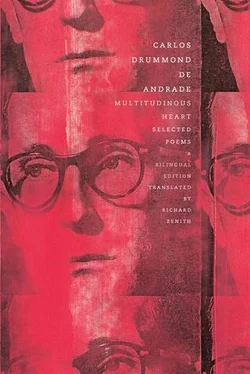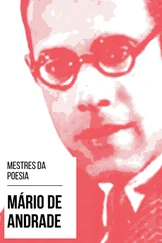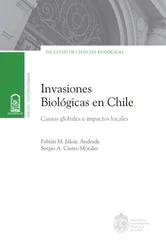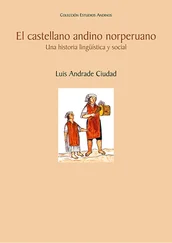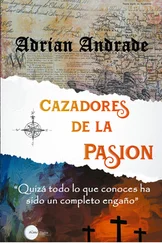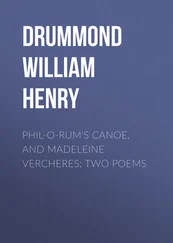* * *
A product of the Brazilian rural elite, Carlos Drummond de Andrade was born on October 31, 1902, the fifth of six children to reach adulthood (eight others died in infancy). His mother gave him the Drummond name, passed down from Scottish ancestors. His father owned and operated four ranches, but the town where they lived — Itabira — was known as the iron capital of Minas Gerais. When Drummond reports, in his “Confessions of a Man from Itabira,” that the sidewalks of his hometown were “ninety percent iron,” he was not exaggerating by much. And when he revisits the town as an adult and notes that “[t]he mountain was taller back then” (in “Journey Through the Family”), he means it literally: the iron-rich Cauê Peak had been decapitated and transformed into a mining pit. It was minerals — gold and diamonds — that first attracted settlers to Minas Gerais. Then came cattle ranchers and coffee growers. The people from Minas have always been known for being reserved, cautious, proud, and fiercely independent. Carlos Drummond fit the stereotype.
Generations of Andrade landowners had depended on slave labor, which was not abolished in Brazil until 1888, and former slaves worked as domestics in the large house where Drummond grew up. Their different way of speaking, their African religiosity (mixed up with Catholicism), their abundant use of medals and necklaces, the wealth of stories they had to tell, their songs — all of this represented an alternate, somewhat magical world for the future poet. There was a period in his childhood when Carlos was a regular visitor to the home of Alfredo Duval, a slave-descended mulatto who had gained local renown as an inventive, artistically sophisticated sculptor of saints. Duval also espoused anarchist political and social views.
Carlos’s father was a tough-minded, domineering patriarch, but he was a friend of progress, fond of new things, and he indulged his children. When he was ten or eleven years old, Carlos easily talked him into buying the Portuguese version of the International Library of Famous Literature, in twenty-four volumes — which he later wrote about in “Green Library.” Based on the original English-language edition, published in 1898, the Library included an assortment of greatest hits from the canon of Western literature, beginning with Homer, as well as many selections from nineteenth-century British and American authors now more or less forgotten. This hodgepodge of poetry, essays, fiction, and theater became the literary foundation for the little boy from Itabira. Drummond’s subsequent readings, as an adolescent and then an adult, would continue to be a mixed bag of irreproachable classics and recent literature of uneven quality. He did not worry about gaps in his knowledge of general culture, and he was far less informed about poetry than a Pound, an Eliot, or a Fernando Pessoa. That did not stop his rich literary imagination from being as productive as theirs.
Shy and studious but firm in his convictions and unwilling to back down, Drummond was expelled from a Jesuit boarding school for “mental insubordination.” That was in 1919. The next year he moved with his family to Belo Horizonte, the capital of Minas Gerais. It was there that he began to have a literary life, meeting with other young writers in cafés. He had already been a contributor to student publications; now he placed articles in local newspapers. It was an effervescent period for art and literature. The Modern Art Week of São Paulo, held in February 1922, gave visibility and momentum to Brazilian Modernism, which adapted the tenets of European vanguard movements such as Futurism and Dadaism to a nationalist project that promoted native culture and linguistic independence from Portugal. The fervor spread to other urban centers, and in 1924 an informal delegation of modernists traveled from São Paulo to Belo Horizonte. It included the painter Tarsila do Amaral (1886–1973), the Swiss writer Blaise Cendrars (1887–1961), and the two prime movers of literary Modernism in Brazil: Oswald de Andrade (1890–1954) and Mário de Andrade (1893–1945).
It is an odd coincidence: none of the three Andrades were related, but they form a trinity without which the history of twentieth-century Brazilian poetry would be much poorer. Oswald was the great iconoclast and fiery preacher of Modernism. Mário was a more careful and constructive theorist and creator. Carlos was the most inspired practitioner, applying lessons learned from the two older Andrades to produce his country’s most dazzling body of poetry to date.
Drummond had praised Oswald de Andrade’s first novel in a review for a Belo Horizonte newspaper published in late 1922, and it was Oswald who, a year and a half later, made sure the young writer and journalist knew that the modernists were coming to town. In 1928 Oswald would publish “In the Middle of the Road”—the poem that made Drummond both famous and infamous — on the front page of his Revista de Antropofagia. (Most of the ten-line poem is built on permutations of a single phrase: “In the middle of the road there was a stone.”) Anthropophagy, or cannibalism, as promulgated in the magazine, signified the violent assimilation and thorough Brazilianization of European cultural models, and it also honored Brazil’s indigenous past, when ritual cannibalism was still practiced. The native Tupi people did not have a written language until the Jesuits arrived, and Drummond soon came to feel that Oswald’s anthropophagy, when applied to poetry, had too much anthropology. This led to a falling-out between the two writers.
Mário de Andrade was Drummond’s most vital and enduring mentor. They began exchanging letters in 1924, right after their first meeting, and Mário was a brilliant literary coach. He generously read the younger poet’s work, giving him detailed commentary and urging him, above all, to write Portuguese the way Brazilians actually spoke it. Mário, who had studied music, was particularly attentive to sound and rhythm, and since he understood exactly what Carlos was trying to achieve, he knew just what to encourage, what to warn against.
In 1925 Drummond, who already stood out as one of the leading modernists from Minas Gerais, founded a short-lived magazine with his friends from Belo Horizonte, and in 1930 he self-published his first book of poems, which was widely admired, even if his dry, minimalist style was not to everyone’s liking. Manuel Bandeira (1886–1968), the senior poet among the Brazilian modernists, lavished praise on the poetry. So did Mário de Andrade. Drummond’s poetic career was launched, but he still needed to earn a living. He had a wife to support, Dolores, and since 1928 a daughter, Maria Julieta (the couple had lost a newborn son one year earlier). Averse to working as a pharmacist, the profession for which he earned a degree in 1925, the same year he married, the poet did some teaching and pursued journalism until he finally secured a job as a civil servant for the state of Minas Gerais, in 1929. Five years later he moved with his wife and daughter to Rio de Janeiro, where he would work for the federal government until his retirement, in 1962. It was in that city that he died, on August 17, 1987, twelve days after his daughter’s death from cancer. His wife, born in 1899, died in 1994. There are three surviving grandsons.
Unlike some of his modernist predecessors, Drummond was neither flamboyant in appearance nor sparkling in his conversation. Mild-mannered to a fault, he had opinions and tastes typical for a liberal-minded, well-educated man partial to culture. The changing times and his new social milieu had a noticeable, partly predictable, effect on his poetry, at least in the first several decades of his career. Not so predictable was the staunch individualist’s conversion to Communism. In Brazil, as elsewhere, there was a militant contingent of Communist adherents among intellectuals, and the Soviet Union’s defeat of Hitler on the Eastern Front burnished the red party’s credentials. It was only then that Drummond signed on, but he began moving in that direction at the beginning of the war.
Читать дальше
